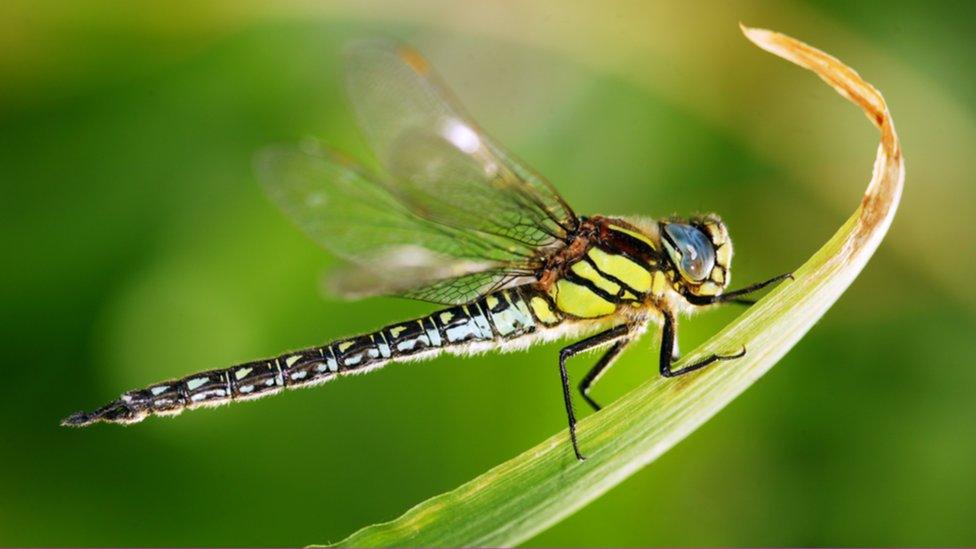Dragonflies: Increase in numbers could be linked to climate change
- Published
- comments

Dragonfly numbers are increasing in the UK, compared with many other insect species which are in decline.
A new study by the British Dragonfly Society (BDS) has found that over 40% of the insect species have increased in number since 1970, while only 11% have declined.
This might sound like good news, particularly for dragonflies.
But it could be a sign of climate change because dragonflies are tropical insects that like warm temperatures.
If dragonfly numbers are increasing in cooler countries like the UK it could point to warming temperatures and climate change.
The new report looked at data from over 50 years and is based on 1.4 million dragonfly records from 17,000 recorders. Nearly all of the data is collected by volunteers, before being checked.
It found that 19 of 25 resident and regular migrant damselfly and damselfly species have increased in Britain and Ireland. They also discovered eight new species have arrived since 1995.
In Great Britain there are about 30 different species of dragonfly
They have brilliant eye sight. Their big eyes mean they can see ahead, behind and to the side all at once
In many species of dragonflies adults change colour as they get older
Although their numbers are doing well, there is concern that climate change is impacting their distribution across the country.
Dragonflies were mainly found in England and south Wales until the 1990s, when the species crossed the Irish Sea and spread through Ireland. They can now also be found in Scotland too.
- Published2 February 2021
- Published11 February 2019
- Published4 September 2021
